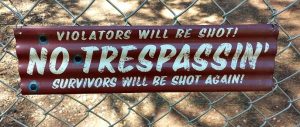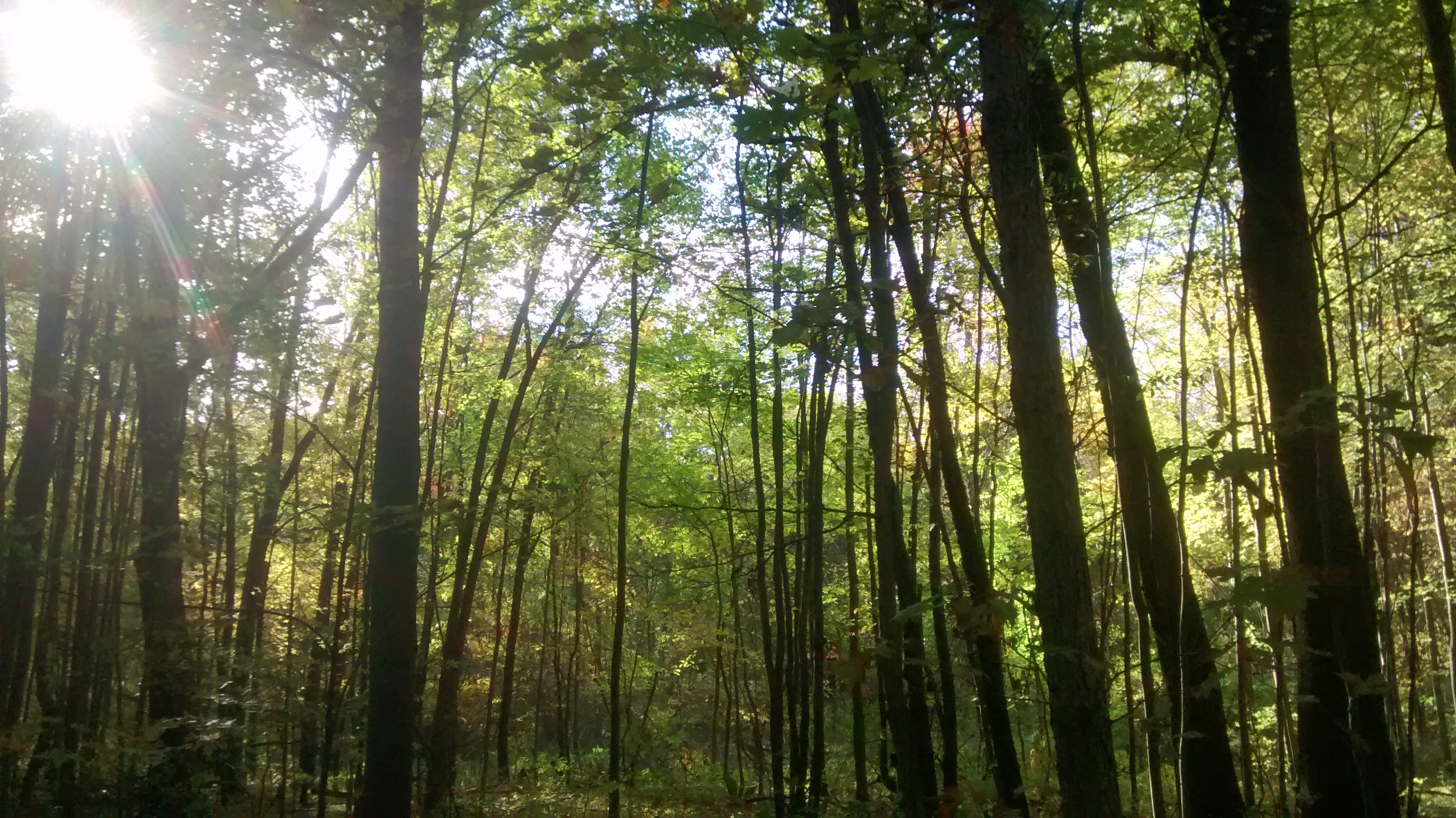The Open Fields doctrine means that even when you’re out in the middle of your own woods, far from the prying eyes of passers-by, maybe you’re never really alone.
What does the Fourth Amendment mean to you? The Founders’ rightful apprehension of arbitrary governmental intrusion into our private lives via searches, seizure of property, and arrests is well-documented. In the years since Sam Adams considered the Rights of Colonists, however, jurists refined their interpretations of the law, and technology has surpassed what the Founders ever could have dreamed possible. What we’re left with is a mix of precedent and ideology, which yields perfectly legal yet utterly counterintuitive results like the Open Fields doctrine.
In 1984, the Supreme Court upheld a Kentucky man’s marijuana-growing conviction. To find the plants, law enforcement officers had to drive past the man’s house to a locked gate with a posted “No Trespassing” sign, trespass around the gate on foot, and walk another mile down a private road. Although the petitioner clearly assumed a fairly high level of privacy so far from any public access, the Court held that the Fourth Amendment’s guarantee only applies to the intimate area inside and closely surrounding the dwelling. A certain amount of space adjacent to a home, called a curtilage, such as an enclosed yard or porch area, could reasonably be considered private, but open fields, such as acres of farmland, “do not provide the setting for those intimate activities that the Amendment is intended to shelter from government interference or surveillance,” according to a 1924 decision referenced by the Court.
Which brings us to the present day. In 2018, Hunter Hollingsworth, a Tennessee landowner, entered his property before sunrise, intending to hunt ducks. As his truck rounded a curve, he saw an unusual reflection, high up in a tree. Curious, he approached with a flashlight and saw a trail camera, complete with a transmitting antenna, photo storage, and a SIM card, aimed to observe his comings and goings. Whoever placed the camera took the trouble to remove any tree limbs that might obscure the view. Alarmed, he cut the zip ties and tossed the strange camera in his truck. He soon found over a thousand photos of himself, family, and friends had been sent …somewhere… and that the camera had been active for months.
Later that year, Hollingsworth was finishing up breakfast when heavily armed agents from the U.S. Fish and Wildlife Service and the Tennessee Wildlife Resources Agency surrounded his house, asking for their camera back. Hollingsworth was charged with baiting doves – and camera theft. Agents had to trespass across two other peoples’ property to get to Hollingsworth’s woods where they climbed a tree to set the camera, but according to legal doctrine, those woods count as “open fields,” where one cannot have any reasonable expectation of privacy.

Five miles from Hollingsworth’s place, another Tennessee landowner, Terry Rainwaters, also discovered government cameras on his property. Driving a side-by-side through his father’s 136 acres of farming and hunting land, Hunter Rainwaters found two trail cameras zip-tied to trees in the woods. Two days later, as the father and son were thinking about what to do with the cameras, someone took them away. Someone who must have trespassed onto their property without warrant or even probable cause (aside from a 2016 hunting violation).
The Hollingsworth and Rainwaters cases may end up changing the law in Tennessee. A handful of states (New York, Mississippi, Montana, Oregon, and Vermont) have constitutions that shield the privacy of open fields as they do a private dwelling. An earlier decision found that the Tennessee State Constitution counted occupied property as a “possession,” which law enforcement couldn’t enter without a warrant in the hopes of uncovering contraband.
If the Constititution is indeed a living document, which the Founders expected to grow and change along with the Republic, perhaps what’s “reasonable” may also change. Do you think it is reasonable for the deep woods or even cornfields to be considered as visible and public as the sidewalk along a busy street? Is it appropriate and “reasonable” to expect government agents to sneak past “No Trespassing” signs and locked gates to rig up spy cameras in the dark of night, to observe what you do on your own land 24/7/365? Or would a “reasonable” American find that to be creepy and intrusive? Not even Ben Franklin could have imagined the modern surveillance state, but he sure knew what private property was.
Related: Texas Attorney and Rancher Richard Palacios Sues Border Patrol After Finding Camera On Son’s Land


Join the conversation!